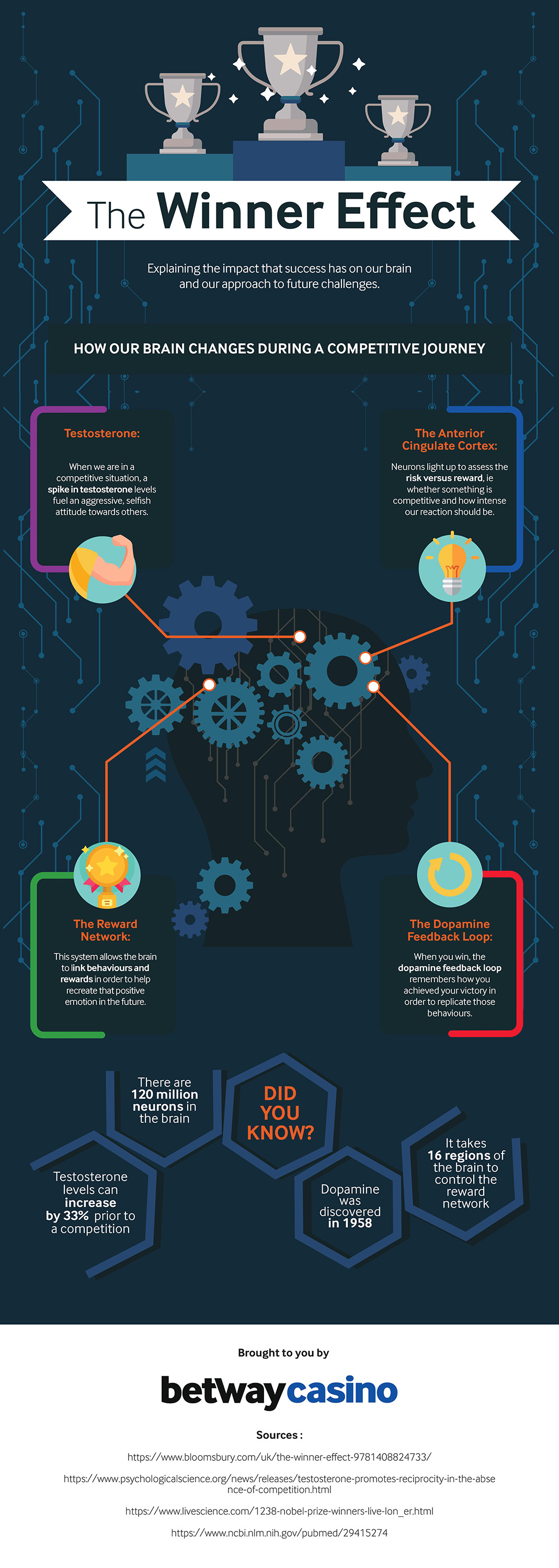If you’re wondering what the winning ingredient is in entrepreneurship, you might be surprised to hear that those fortunate enough to achieve early success are far more likely to be successful again in the future.
That’s according to Ian Robertson, a cognitive neuroscientist and psychologist, who has investigated the possibility of a “Winner Effect” existing in all walks of life.
Mr Robertson, who is also a professor at Trinity College Dublin, believes a human’s brain is hardwired to strive for more positive experiences once it has had an initial taste of success.
Robertson’s eye-opening theory on the Winner Effect has inspired Betway to look further at how an individual’s competitive journey impacts on the brain and the effect that success can have on our neural pathways.
No matter whether an individual is turning a profit with their inaugural start-up business, striking it lucky on the blackjack table or demanding heaps of rent in a family game of Monopoly, according to Betway’s infographic, our behaviour in competitive scenarios triggers four common processes in the brain:
- Testosterone levels can rise by a third
- We assess the risk-versus-reward ratio to determine how intensely we react to the competition
- Our brain’s reward network hunts out positive experiences in the future
- Dopamine helps our brain to replicate the same behaviours that achieved success in the past
The upshot? Winning in life has a far more positive effect on our brains and our bodies than many people think.
It triggers our innate desire for more physical and emotional rewards and underlines why those who get a taste for victory early as an entrepreneur stand a better chance of seeking further success in business later in life.
Check out the full infographic below to gain a deeper understanding of Robertson’s Winner Effect:
Image: Betway


